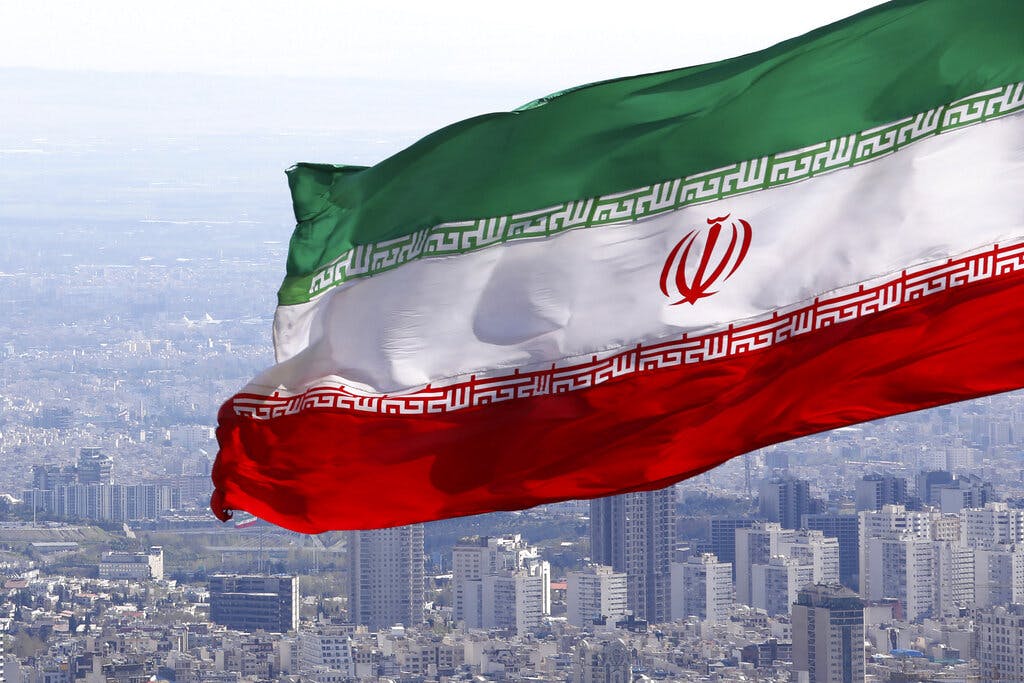Britain Will Declare Iran’s IRGC a Terrorist Group
London’s move appears to have been galvanized by the recent disclosure of multiple assassination plots against individuals based in Britain.

Britain will within a matter of weeks officially designate Iran’s Islamic Revolutionary Guard Corps as a terrorist group. The decision, first reported by London’s Telegraph newspaper, comes after the country’s domestic counterintelligence and security agency, MI5, found that Iran plotted to kidnap and assassinate 10 British residents last year. It coincides with a rising tide of social unrest in Iran and amid reports by an IRGC official of growing divisions with the hardline Islamic regime’s leadership.
President Trump listed the IRGC as a “designated foreign terrorist organization” in April 2019. London’s belated move appears to have been galvanized by the recent disclosure of multiple assassination plots against individuals based in Britain, including two Anglo-Iranian journalists targeted by an Iranian hit squad operating in the British capital.
During an annual speech in November, the director of MI5, Ken McCallum, singled out Iran as the “state actor which most frequently crosses into terrorism” and called Tehran’s spy apparatus “a sophisticated adversary.” Mr. McCallum added that “at its sharpest this includes ambitions to kidnap or even kill British or U.K.-based individuals perceived as enemies of the regime.”
The designation will carry much weight: According to the Telegraph, “proscribing the group means it would become a criminal offense to belong to the IRGC, attend its meetings, carry its logo in public or encourage support of its activities.” While parading the logo of an Islamic terrorist group would seem anathema to most, it has happened. The newspaper reported that the IRGC flag, “with its distinctive automatic-gun insignia, was unfurled during an anti-Israel demonstration in Trafalgar Square on May 22, 2021.”
Britain’s security minister, Tom Tugendhat, was reportedly a key figure in advocating for the change in designation, and has said that Tehran has continued to threaten Britons even after the speech made by Mr. McCallum. A Conservative lord, Eric Pickles, who also is chairman of Britain’s Conservative Friends of Israel, told the Telegraph that “proscribing the IRGC would demonstrate to Iran that it can’t be business as usual.” A Tory MP, Stephen Crabb, stated, “It is very, very clear that the international community needs to take much stronger and clear-sighted action against Iran.”
Fractures in the Iranian regime appear to be multiplying. An IRGC official, Hamid Abazari, said in a speech broadcast on an Iranian television network last week that senior officials had “failed and stood against values, [Supreme Leader Ali Khamenei], and the regime.” And an IRGC commander criticized “some elites” for their silence with respect to the ongoing protests.
The Daily Mail recently published excerpts of leaked Iranian government documents, first obtained by Fars News, that show dissension between IRGC officials and other segments of the Iranian regime. Some of these show that the IRGC officials are completely out of touch with the student protesters and that “the young are speaking a language we don’t understand.”
In one document, paramilitary guards said they have “lost control of the universities,” and in a leaked recording, Mr. Khamenei reportedly tells a police chief not to “lose your confidence” amid the protests.
According to human rights organizations, at least 470 demonstrators in Iran have been killed and more than 18,000 arrested since mid-September.
The American magazine Foreign Policy argued in 2020 that the Iranian regime “was weaker than many Western analysts and policymakers thought.” It now says that America “should lend protestors a hand” as they seek regime change.
London’s welcome move to ban the IRGC is on one level about ensuring domestic security. It is also an important step toward exposing the Tehran regime’s terrorist tentacles for what they are, and discrediting the mullahs even more thoroughly in the process.
The Guardian newspaper reported that following the tide of nationwide protests that began over women’s rights, Iran in 2023 “faces a defining year in which the regime will either wrest back control or see resistance grow into something that genuinely threatens the Islamic Republic’s 43-year rule.”

